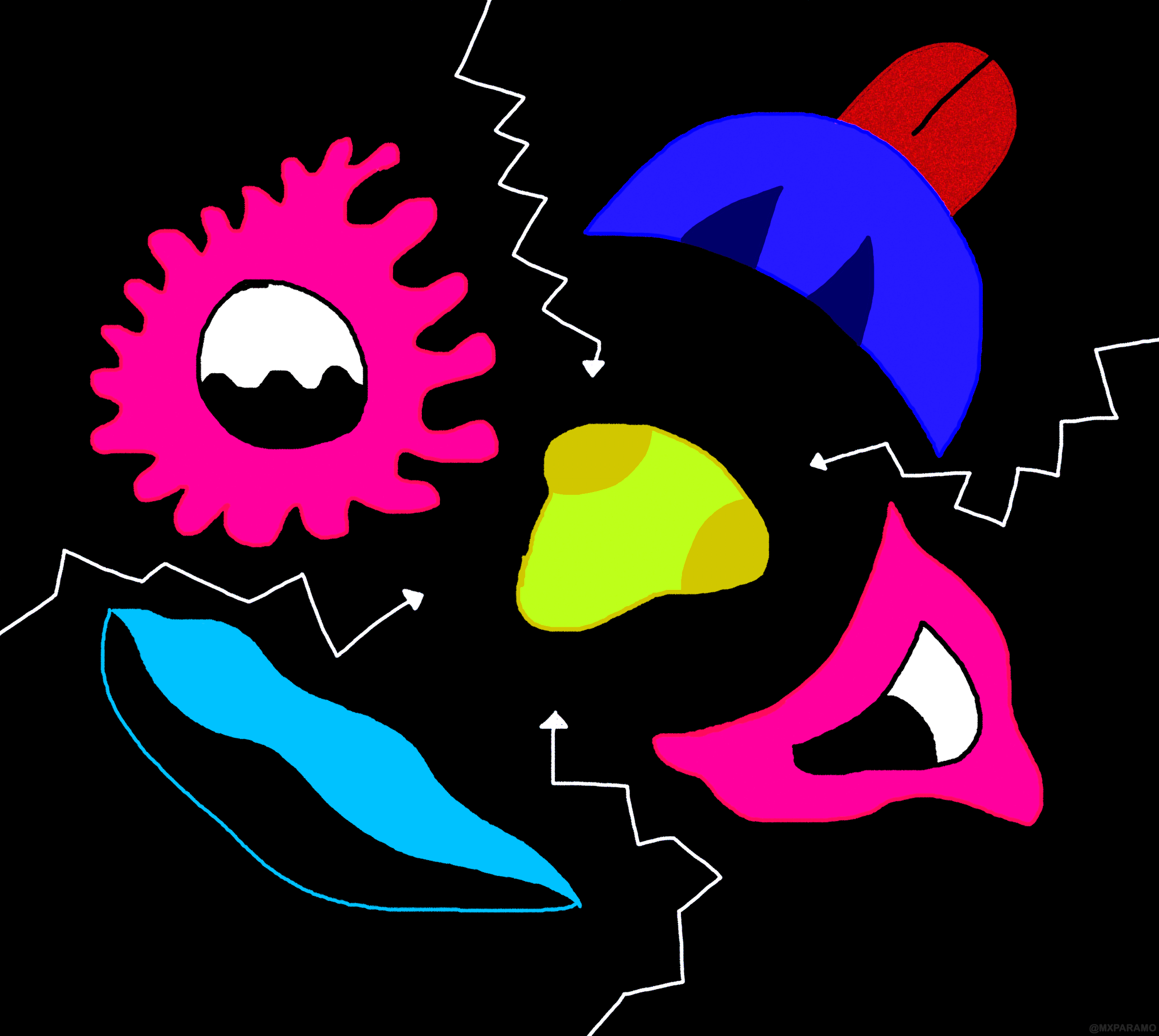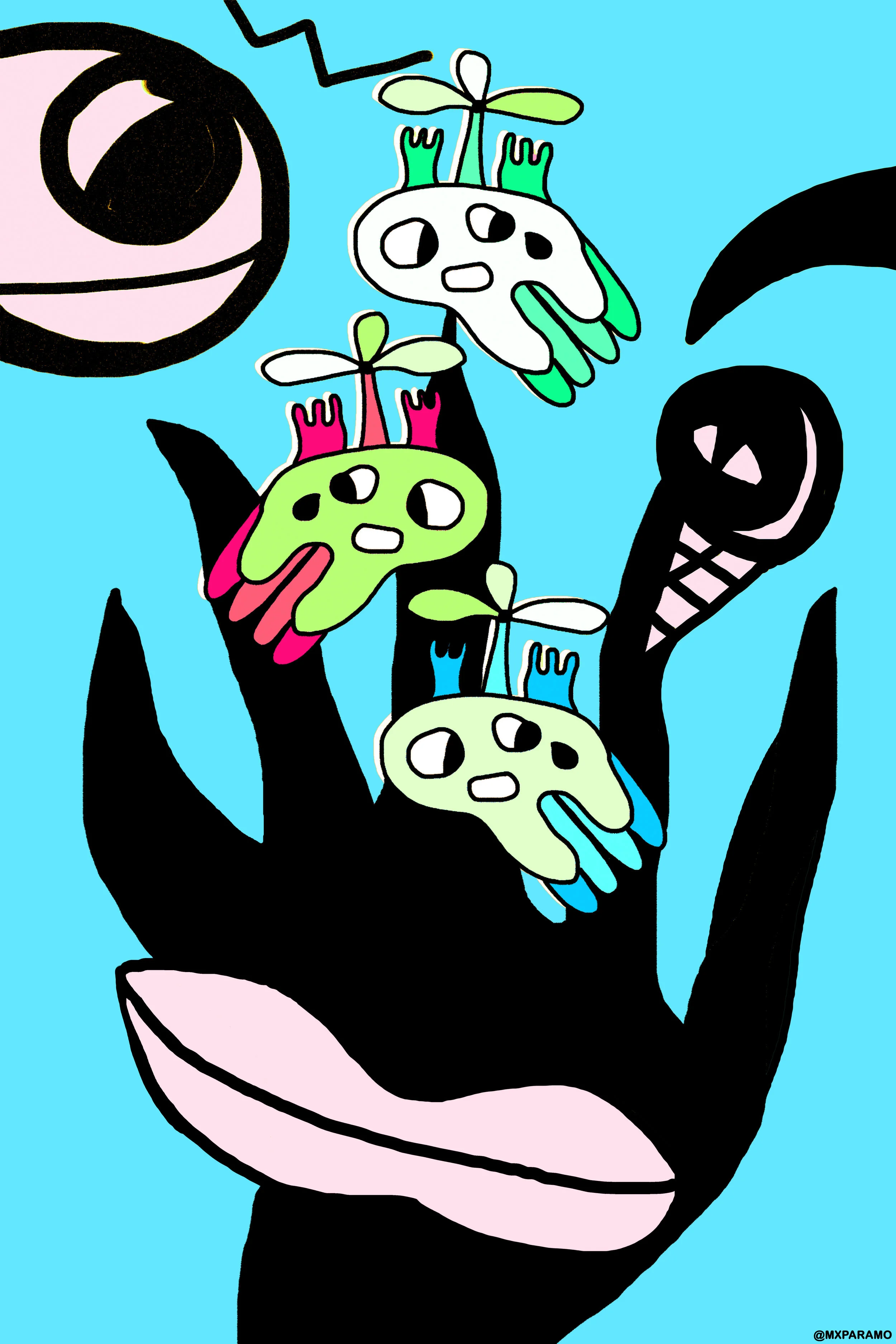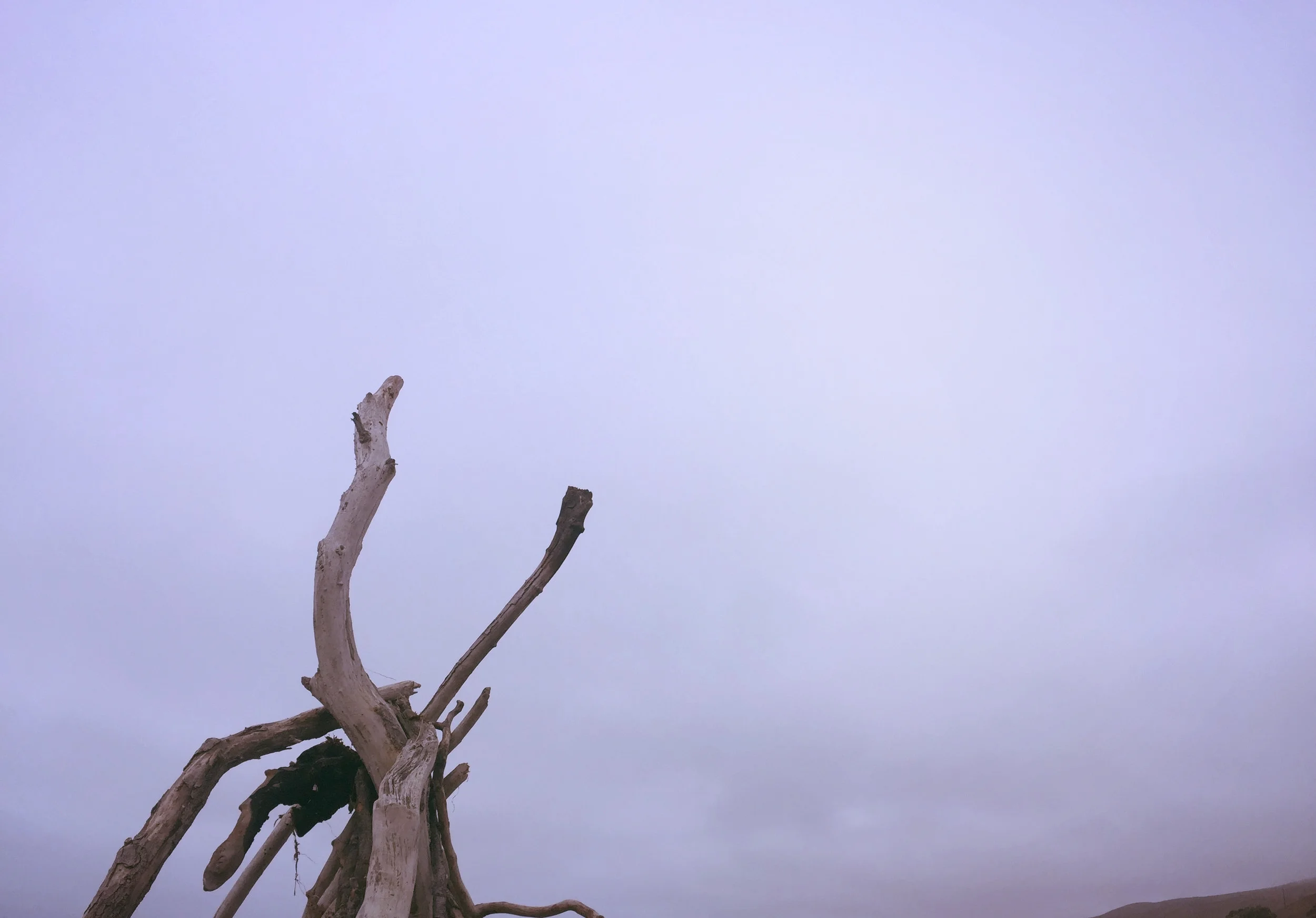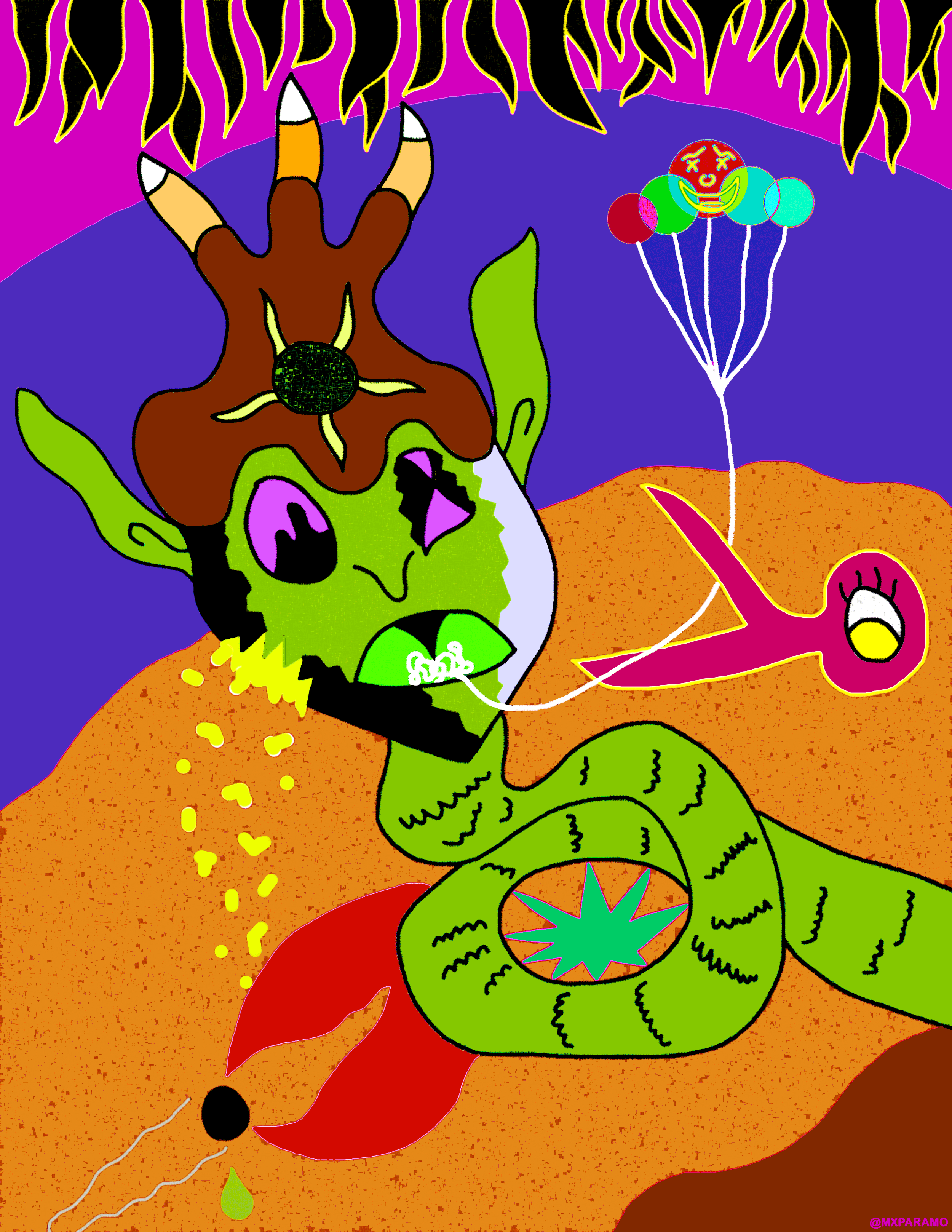To reclaim simplicity
The privilege of ignoring labels always goes hand in hand with the privilege of being ‘normal.’ Heterosexual, heteromantic, cis people do not label themselves, theirs is the default identity. Politically flawless simplicity. What is there to explain?
Of this privilege, I have enjoyed a good share. The only effort required of me was to keep making up crushes to please my mother and prevent the girls in my classroom from picking on me. I look feminine, I am conventionally beautiful, no one would ever assume I could be anything less than the norm. Neither would I. After all, I did not like the boys I named, but I didn’t like girls either. I simply believed that my friends weren’t really interested in romance or sex. It was just an elaborate social ritual of pretend, and I would play along when strictly necessary, but everyone was merely playing, everyone was faking attraction, of that I was sure.
The first time I realized that labels could apply to me was when I discovered the word asexual. I was seventeen and too busy convincing myself that I liked men. I was also getting accustomed to the concept of labels for the first time, to the kaleidoscope of colors outside the ‘norm.’ From that I quickly decided that asexual was just too much work as a label. It required me to build up all the validation I needed by myself, because few had heard of it, even less accepted it. The thought of sticking out loomed over me. I was normal, I would be normal.
On my 20th birthday, I started looking for labels again. I had been friends with this girl for a few years. Talked to her every day. Confided in her, whispered every one of my darkest little secrets and paranoias, laughed at her jokes, watched movies with her and listened to her cry. Like a best friend, but something more. For the first time in my life, I would wake up in the morning and look forward to talking with someone, to hear her voice, to be with her, and at night I would go to bed with her accent still inside my ears, the way Rs would roll softly off her tongue. As I blew out the candles on my 20th birthday, I thought to myself: “I think I’m in love. I’m in love with my best friend.”
Love is a complicated thing. So beautiful and so mysterious, or so I am told, that its elapsing must be strictly codified by a precise ceremonial of romantic gestures, ordinated on a scale of escalating physical intimacy. Society told me that if I was in love with her, I should kiss her. How would I differentiate between a friend and something more otherwise? How would I claim a new, simpler label?
But my relationship with love is also a complicated thing. Desirable, yes. An intellectual and emotional connection between kindred souls. Mysterious, surely, so much so that my mind interpreted it as nothing more than the inevitable outcome of the expectations that transform men in looking subjects and women in objects to be looked at.
My aromanticism and my asexuality fit perfectly into this scheme and comfortably hid themselves behind a cover I called passivity. Laziness. The anxiety of choosing a partner, courting a partner, making the first move, keeping a partner was simply foreign to me, no matter my loneliness. I could not contemplate falling in love as an action that required active participation on my part. I am a woman. It was supposed to simply happen, right?
Our love didn’t fit any criterion I was familiar with. It exceeded the boundaries of friendship in every possible direction, but my mind was wrong, it couldn’t be love. My heart would burst into a swarm of butterflies when we could spend time together. I would cuddle her and lace our fingers, get matching custom necklaces, flirt for the fun of it, lay awake at night missing her, but I never wanted to kiss my best friend. The more I thought about kissing her the more repulsed I felt by the idea. It was like trying to fit a wrong piece into a perfect puzzle. Our relationship wasn’t missing a piece. It was already complete, but in the wrong way, and in the place where I should have found my attraction, there was only emptiness, a lack of space more than a missing piece, and no one could fill it.
When we broke up, I didn’t know how to refer to what we had had. She could not be my girlfriend, and yet the pieces of my heart were scattered on the ground like shards of glass. By the end of it, she had stepped on each one of them and now the pieces looked back at me, confused. How could I let a simple friend do this? How could a friend hurt me so deep? And when I crouched on the ground, trying to piece myself back together, I tried to piece back labels too. It had been a phase. I did not like women, I simply hadn’t met the one, I could still fake normality, pretend I had crushes.
“You’re 21 and you have never fallen in love?”
Of course I have. My internalized misogyny, homophobia and aphobia all held hands for a merry dance and turned my best friend into a ‘he.’ In most of the stories I told about her, he had been my best friend, he had had been abusive, he had broken my heart. People would always assume he had kissed me too, because our relationship was too intense to be platonic when inspected under the light of heteronormativity. It wasn’t true, but people would assume it. They found this lie easier to believe than the fact that someone could fall in love without falling in love.
My attraction was a smooth surface where there should have been texture, a blank page where there should have been writing, simple, uncomplicated emptiness where there should have been space. It resonated with the texture, words and spaces of my personality, it fit there, but how could it be enough?
“If I don’t fall in love with people, what is left for me?” is a question society asked me way before I started asking it to myself. If someone decided that my body and my heart are objects to guard or bestow a lover, what is their worth if I decide that they are for no one else’s use but my own? That I am mine, not to be looked at, desired, possessed by no one else but me. If my future and my value are dictated by the degree of success of my marriage, by the number of children I can birth, by the social desirability of my spouse, what is of my future if I don’t marry, if I don’t birth children, if I do not have a spouse?
Just like love, I learned that being asexual and aromantic was complicated. I was unique, not the norm, I needed to look for labels to explain to other people what normal felt to me. I was just one of the thousands of colors in the spectrum of human attraction. It was beautiful: there is so much diversity to be found in this world, but it was also tiring. Asexual was a complicated label to work with already, aromantic was just terrifying.
“You just haven’t met the right person,” “You’re sick,” “You aren’t human,” “You need a doctor,” “You made it up,” “No one will want you if you keep saying that.”
It scares me so much that, sometimes, I try to make myself fall in love with people. I would try to please, to be meek, to settle for a romance that would at least make one of us happy when everything I’m asking for is companionship. I am never someone else’s normal, but I can act it. If I don’t try, some part of me will feel like I’m throwing something away, leading them on. I’ll find my attraction if I look hard enough. I can learn to desire a body, I can look forward to being desired, I can gulp down the revulsion that comes with the mere thought. I never succeeded, my mind reminds me, but it must be my fault.
I would never romanticize the oppression allosexual LGBTQ+ people face, but now that I know labels, I wish I could stick just one on my back, one everyone knows and accepts, in hate or love. Because the subtle, but persistent kind of discrimination you get for being a queer, arospec, sex repulsed asexual is honestly so disheartening.
Even queer people won’t believe me, no matter how hard I try to make them understand. Not all of them believe that you can ‘not need’ sex, and that not only sociopaths don’t fall in love. I am a confused cishet, a lesbian who had one bad experience, bicurious maybe, in need of a good fuck, of the one, of a good therapist. And yet how could someone believe me when I didn’t believe myself for so many years? How convincing can I sound?
“Who do you like?” my gay friends ask me.
“Women, for sure” is my answer. Please tell me I’m queer enough is the silent plea behind it. Because asexual never felt enough and aromantic is still too scary. And because, when I say ‘asexual’ without the magic word, women, the next question is always: “So you’re straight, right?”
“Who do you like?”
“Women, for sure… But I don’t know,” I have taken the habit to add, sometimes, when it’s late and the company is good.
“Who do you like?”
“I’m asexual. Maybe aromantic. It’s complicated,” and, when I am lucky, they nod and keep on talking.
Sometimes I still think I’m wrong, I want to stop sticking out. But I’m tired of pretending and I’m equally tired of being something I am not. I didn’t mean to fall in love in the wrong way. I just do, it’s who I am. I don’t know if it will change. I didn’t make my identity a political statement, a critique against a system that has dictated the minutiae of how we understand and live relationships for two hundred years. When I woke up with the full awareness of what aroace meant, I had to accept that it was already part of the deal. I didn’t make it complicated, someone else decided that simple things did not include me.
I just want it to be simple, to disappear in a crowd of people like me and not have to dig up my insecurities every time the subjects of sex and romance come up. I don’t want to explain the same thing over and over, to look sheepish to dodge the “you just need to try harder” or to feel so lonely that I fall into the trap of believing that, maybe, I really need to try harder, that I scare people away, that I’m delusional.
Labels are not for me, they’re for others to understand what normality is for me, if they will listen. The notion of human being transcends labels and words and each one of us is a precious snowflake, but those labels are the closest fit I could find and I’m grateful for that. I started to take pride in it. Now I know that normality is nothing more than a wasp nest of social constructs, hurting ‘normal’ and ‘different’ people alike. It is the furthest thing from simple I could find.
My normal I call ‘ace.’ I don’t know which gender(s) I like. Some people are aesthetically attractive, some are cool, some are both. It doesn’t mean I want to date them. Attraction isn’t all or nothing for me, it’s all and nothing. I don’t have a preference, I don’t have a type. I like individuals. I crave the small moments, the red string that ties two minds together. It doesn’t have to extend to our lips and it doesn’t have to extend into the bedroom.
The feeling of belonging, the feeling of coming back home to someone or looking forward to seeing someone, someone who makes me forget that I am anxious, that is all I ask. I want to be safe, to feel at home and be a home for someone else.
How is that complicated?





